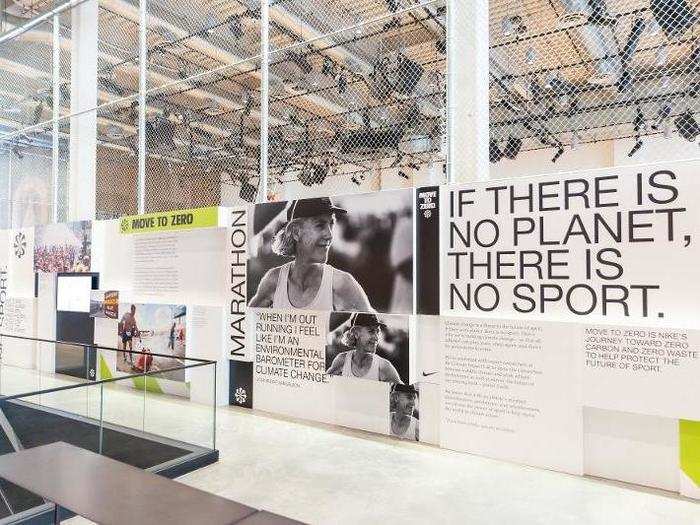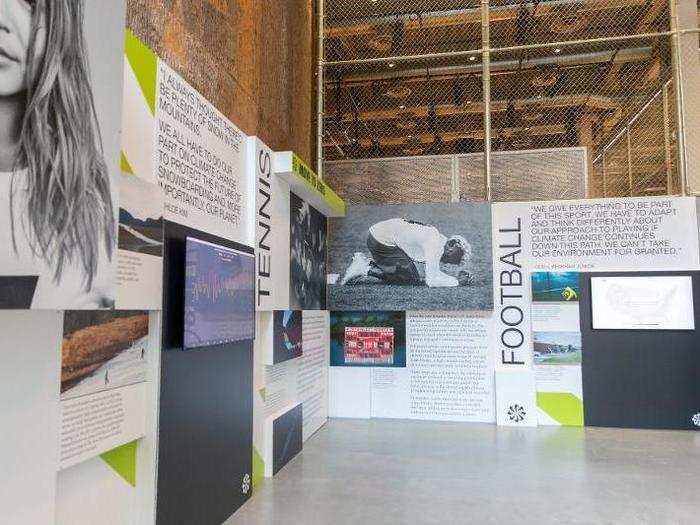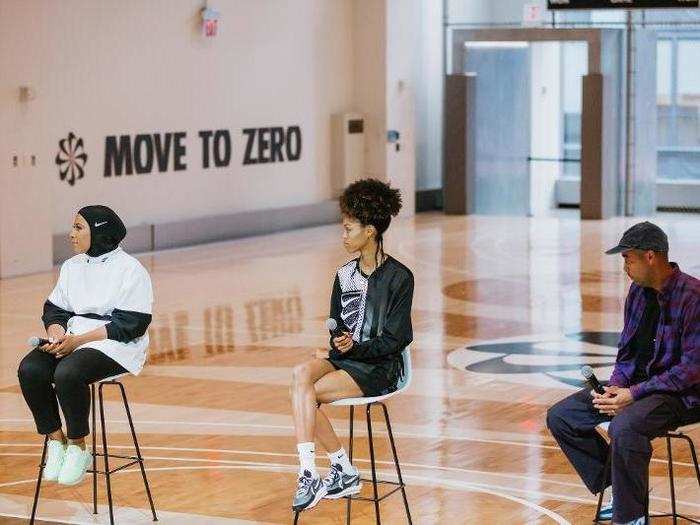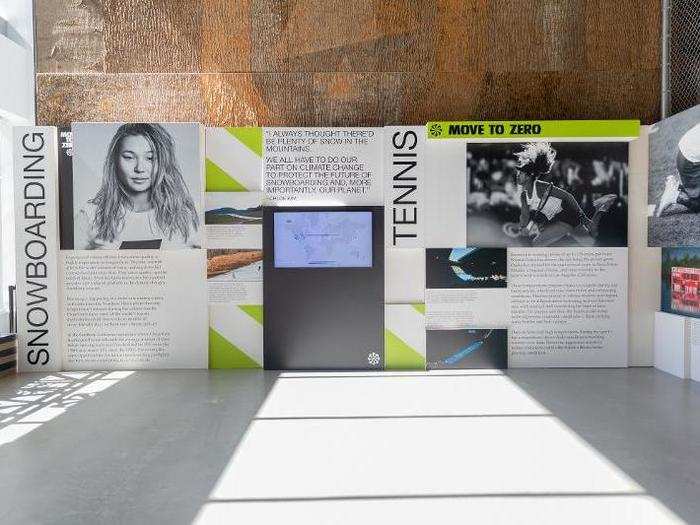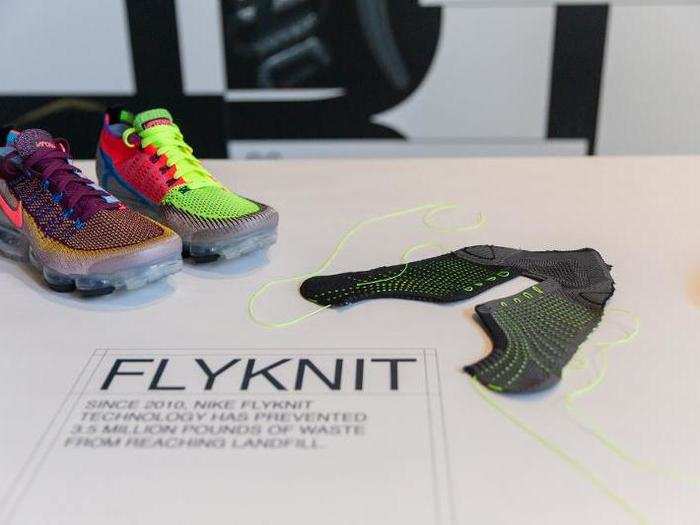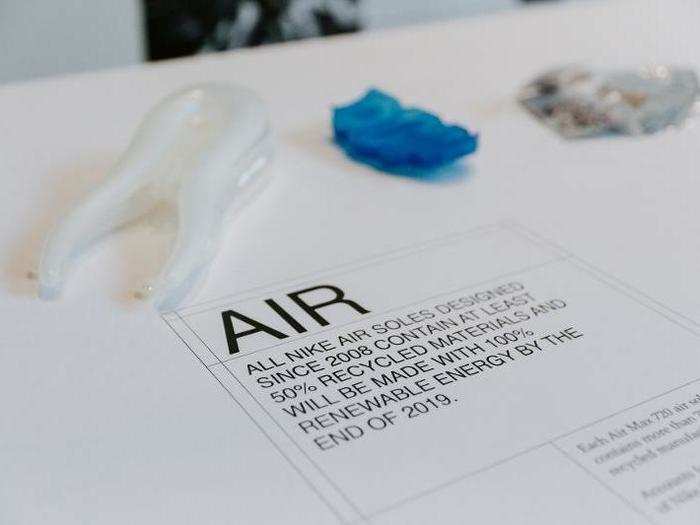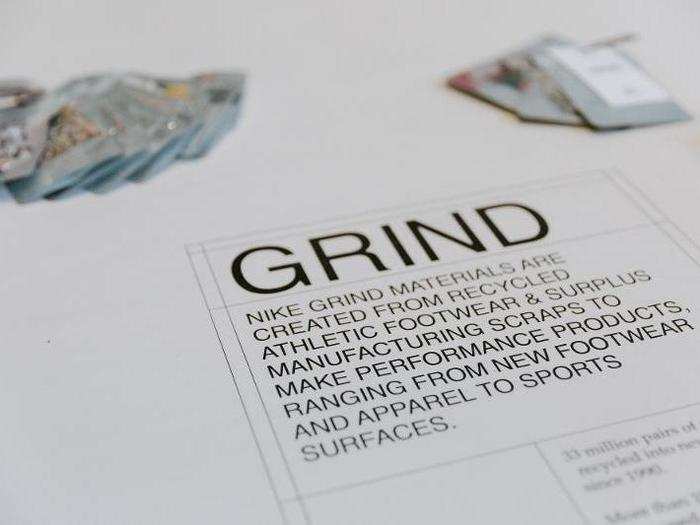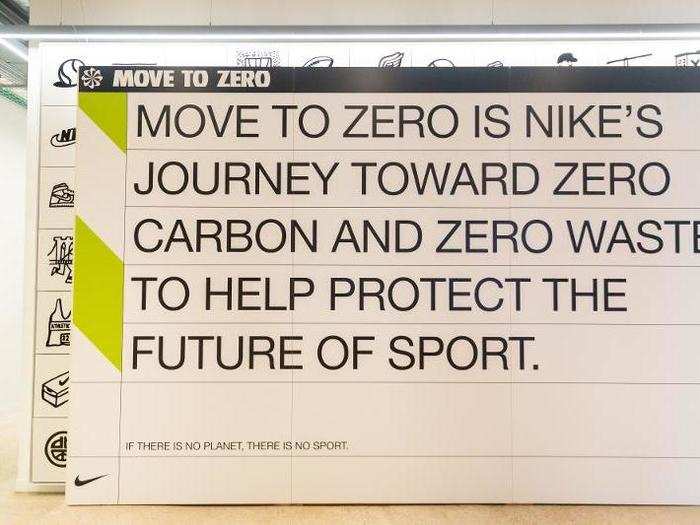Kinder equated the company's sustainability goals to ambitious efforts like "Breaking2," Nike's buzzy 2017 project to break the two-hour barrier in the marathon.
The exhibit explains how several states have adopted rules to protect players from dangerous conditions. As a result, climate change is threatening training time and performance.
According to their findings, "under current trends climate change could decrease time spent on the field by up to two months in parts of Louisiana, Texas and Mississippi by 2050."
Track and field athlete Vashti Cunningham (center) shared her concerns over dangerously hot temperatures while training in her home city of Las Vegas, Nevada.
"Las Vegas is one of the fastest warming cities and this summer I really experienced that heat," she said. "It was very different than any of the other summers when I've been training. It felt like I was walking in an oven just going to do my warm-up lap."
"That's why I chose an indoor sport," Olympic fencer Ibtihaj Muhammad quipped.
Snow sports are also in danger due to the "literal loss of playing field," Nike said.
According to the Climate Impact Lab's findings, the average number of global "quality" snowboarding days has decreased by 7% in the last 30 years and could decline as much as 22% by 2025.
At the event, Nike had a display breaking down the components of its FlyKnit shoe, constructed using circular design.
The company has invested significantly in its circular design efforts, which focus on the core principles of sustainable material choices, recyclability, waste avoidance, and green chemistry, among others.
The display explained each component of the shoe, including the soles made out of 50% recycled materials.
Move to Zero also includes eliminating single-use plastics on global Nike campuses and investing in existing circular design products, such as its FlyKnit shoes and jerseys, which are constructed from recycled plastic bottles.
It also included "grind materials," or parts of products made from recycled footwear.
Nike operates Reuse-A-Shoe and Nike Grind programs that convert shoes into new products, as well as running tracks and courts.
Kinder said that in order to effectively instigate change, the industry will need to band together to find solutions to fight global warming and protect athletes.
"We know we can't do this alone. Climate change is a massively complex problem that's going to require complex solutions and relentless partnership across our industry and beyond, and frankly, even with some of our direct competitors," he said.

